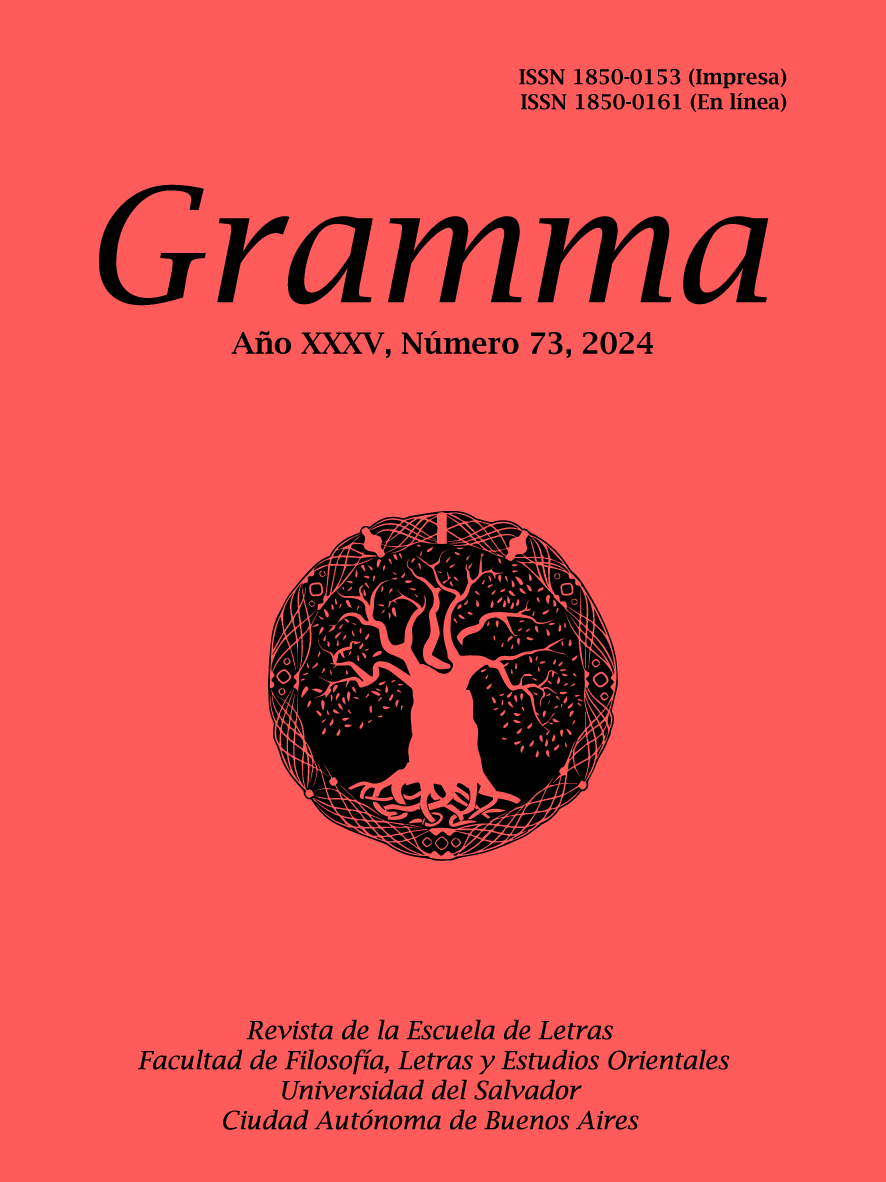Analysis from a feminist perspective of the story "Dónde estás corazón", by Mariana Enríquez
Keywords:
narrative, trauma, fetishist, neofantasticAbstract
The current argentine narrative production has become a suitable setting for inquiring and depicting multiple realities, whether they be happy, traumatic, filled with anguish, or in urgent need of claim. In this paper, we will analyse the short story "Dónde estás corazón" by Mariana Enríquez (2019). The title points to the topic of searching; however, from a feminist perspective, we will explore the subtle play the author suggests to challenge the traditional figure of the heteropatriarchal culture, such as the mandate of how, when, and whom to love. "Dónde estás corazón" challenges the readers in such a way that they encounter a narrative constructed with the aim of showcasing a story of a young fetishist woman who feels attraction, pleasure, and sexual arousement towards wrecked individuals. However, the story goes beyond that because it takes us to the origin of a marked, condemned, and stolen childhood. Harassment becomes an obsession that returns, time and again, until it destroys and annihilates the character. The character introduces the readers to her reality and urges them to think about how, from childhood, with harassment, observation, and suggestion, the foundations are laid for what can be, or is, a harsh journey laden with contempt, resentments, and the need to break out from the situation. Enríquez offers us a narrative that inclines the readers towards a feeling of harassment and abuse. This story fits within what Jaime Alazraki defines as the “Neofantastic”, which distances itself from traditional fantasy through its modes of representation.References
Alazraki, J. (1983). En busca del unicornio: los cuentos de Julio Cortázar. Gredos.
Bellucci, M. y Rapisardi, F. (2001). Identidad: diversidad y desigualdad en las luchas políticas del presente. Teoría y filosofía política. La recuperación de los clásicos en el debate latinoamericano. CLACSO, s. d., 193-207. https://biblioteca.clacso.edu.ar/clacso/se/20100613045508/14
Drucaroff, E. (2011). Los prisioneros de la torre. Política, relatos y jóvenes en la postdictadura. Emecé.
Enríquez, M. (2019). Los peligros de fumar en la cama. Anagrama.
Gonzales Bermejo, E. (1978). Conversaciones con Cortázar. EDHASA.
Jackson, R. (1986). Fantasy: literatura y subversión. Catálogos editora.
Downloads
Published
How to Cite
Issue
Section
License
Works published in this journal are licensed under a Creative Commons Attribution-NonCommercial-
Works published under this licence may be shared, copied and redistributed in any medium or format. Adaptation, remixing, transformation and creation are also authorised. Both sharing and adapting are permitted as long as credit is given to the work appropriately, providing a link to the licence and indicating whether changes have been made. Commercial use of the material is also not possible.








